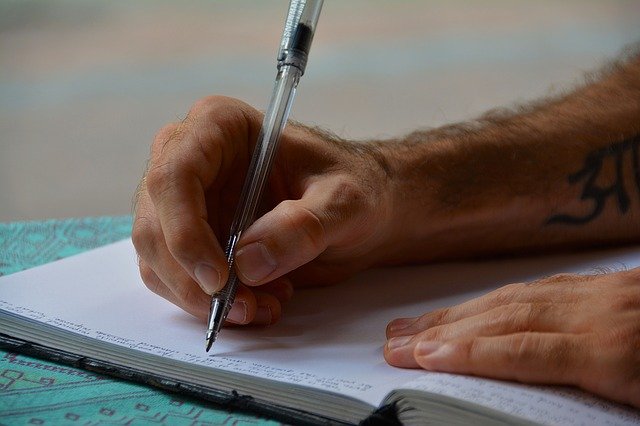Report on the International meeting of the People of God, Sao Paulo (Brazil) June 20 to 23, 2019
Preliminary report
Preparation activities
First, let’s remind the main facts on what happened during the preceding years.
In November 2015 in Rome happened the Council 50 gathering, now designated as 1st Global Forum of the People of God. Proceedings, which include the final declaration, have been issued in both English and French versions.
Around one hundred participants, including representatives from all continents attended.
It was decided to carry on with preparation of other gatherings in the same spirit in other parts of the world. The GCN structure was formed in view of coordinating actions in this regard at international level. Our Brazilian friends proposed to organize a 2nd Global Forum in their country. The original schedules date was November 2018, in particular to coincide with the 50th anniversary of Latin American Bishops conference in Medellin (Colombia) in 1968. In the wake of Vatican II, that conference was a key event in the development of the Liberation Theology. Possibility of a 3rd global forum in Africa was also envisaged in the year 2021.
First postponed to June 2019, it was finally decided to cancel the 2nd forum and to organize at the same dates a small-scale meeting. Current political, economic and ecclesial conditions in Brazil excluded the possibility of a global forum as we had in Rome in 2015.
Then we had our “international meeting of the People of God” in June 2019 in Sao Paulo. The main purpose was to review all what has been accomplished since the 1st forum in 2015 and discuss what could be done in view of future events in the GCN spirit in Brazil, Latin America and other countries.
We were 20 to 25 participants during 4 days, including 5 from other continents: Nontando Hadebe (South Africa), Paul Hwang (Korea), Rene Reid (USA), Mauro Castagnaro (Italy) and Jean-Pierre Schmitz (France). Both Nontando and Paul were already invited speakers at the 1st Forum (Council 50 Rome 2015).
Other participants were Brazilians invited by our GCN local team under leadership from Edson Silva and Lula Ramires.
On Saturday the 22nd, in an Anglican Church of the city, we participated to a joint ecumenical celebration with LGBT movements who held a gathering at the same dates as our meetings. It was really a great moment.
Main subjects
Council 50
Since most of the Sao Paulo participants had not attended the 1st global forum in Rome, we started our meeting with a presentation of Council 50 (Rome 2015). Main aspects of the event were reminded:
- Preparation activities
- Origin of participants (from all continents)
- Supports received
- Main themes
- Speakers and various contributions
- Challenges of the world to be met by a Church inspired by Gospel
- Final declaration (which was forwarded to all participants registered at the Sao Paulo meeting
- Creation of GCN
- Other subsequent actions
Vatican II and Medellin
We had a table to present and comment the links between Vatican II Council, which ended in 1965, and the Medellin Conference in 1968. Since main Vatican II concern was “aggiornamento” of the Church, which was badly needed, Medellin conference was focused on specific social justice issues in Latin America. In some way, Medellin was a complement to Vatican II. However, some important aspects were missing in the final declaration of Medellin, especially concerning role of women.
Continental Clamors that challenges Christians
The panel included Nontendo Hadebe from South Africa, Paul Hwang from Korea, Mauro Castagnaro from Europe, and Rene Reid from the U.S.
See In appendix the relevant papers, except the Paul Hwang’s paper which will be issued later after updating.
Table: From Latin America to the world: Socio-political and ecclesial conjuncture
Report on the exchanges to be completed by GCN Brazil
Synod for the Amazon and the World
Fr Paulo Suess gave a detailed and informative speech on the situation in Amazonia and preparation of the Synod scheduled in Autumn this year and which should be a major event, not only for Brazil and Latin America, but also for the whole world.
Updated text of the contribution to be issued by GCN Brazil
Ecumenism
Nancy Cardosa (woman pastor) spoke as a representative of the Methodist Church in Sao Paulo. She stressed the imperativeness of ecumenism as we move the Church forward. We are all the Church of the Poor.
Plans for the next 2nd Global Forum
In view of discussing future actions and possibilities of a 2nd Global Forum of the People of God in Brazil, we split into two groups, one with Portuguese speaking and the other one with English speaking participants.
Both groups concluded that, with taking into consideration current conditions in Brazil and means of the Brazilian GCN team, the idea of a Global Forum in Brazil in the year 2020 can’t be kept. However, everyone agreed on the principle of a national gathering (Synod, Forum, Plenary Council, …) in the same spirit. All participants would speak the same Portuguese language, so no need of interpreters and translation equipment. Portuguese speaking foreigners, in particular from Portugal, could be invited.
Such initiative could be linked with other national gatherings to be organized in as many as possible countries throughout the world. The GCN international coordination group will try to support those events and establish links between involved groups and movements.
With this in mind, the following Resolution was proposed and will continue to be discussed and developed: (text written by Rene Reid)
Resolve that participants in this gathering in Sao Paulo will return home committed to call on the People of God each in our own country along with numerous other countries throughout the world to host a national Plenary Council, with its own National Conference of Bishops consulted and invited to join, and with young people at the core. The overriding purpose would be to re-found our Church based on Gospel values and in the spirit originally intended by Jesus Christ. The topics would be determined according to the particular needs of each region but generally would include the most pressing issues of our time: the laity having a deliberative voice in church governance, women’s equality, the inclusion of sexual minorities, a path for the divorced and remarried to return to the Sacraments, tribunals to oversee the sexual abuse crisis with lay leadership at the helm, and a concerted effort toward ecumenical movements.
These national Plenary Councils would then be the lead up to the 2nd Global Forum of the People of God, having broad representation from numerous organizations and regions of the world. This build up has the potential to give the Forum far greater creditability and influence. Imagine what might come of this: perhaps, after Francis having called several Synods of Bishops, the Spirit guided him to finally be inspired to call a Synod of the People. And this, in turn, could lead to calling the 3rd Ecumenical Council picking up where Vatican II left off.
This report is preliminary. It should be reviewed and completed by the GCN Brazilian team, especially regarding contributions and exchanges made in Portuguese language.
Jean-Pierre Schmitz
21 July 2019
Appendices
The most pressing socio-economical as well as challenges for the Church in Africa. By Dr Nontando Hadebe
The Movements for Church reform in Europe after 6 years of Pope Francis pontificate By Mauro Castagnaro
Moving our Church forward today with both the Church and Society in turmoil Challenges By Rene Reid
Church reform and realities in Asian Catholic Churches By Paul Hwang (later)

